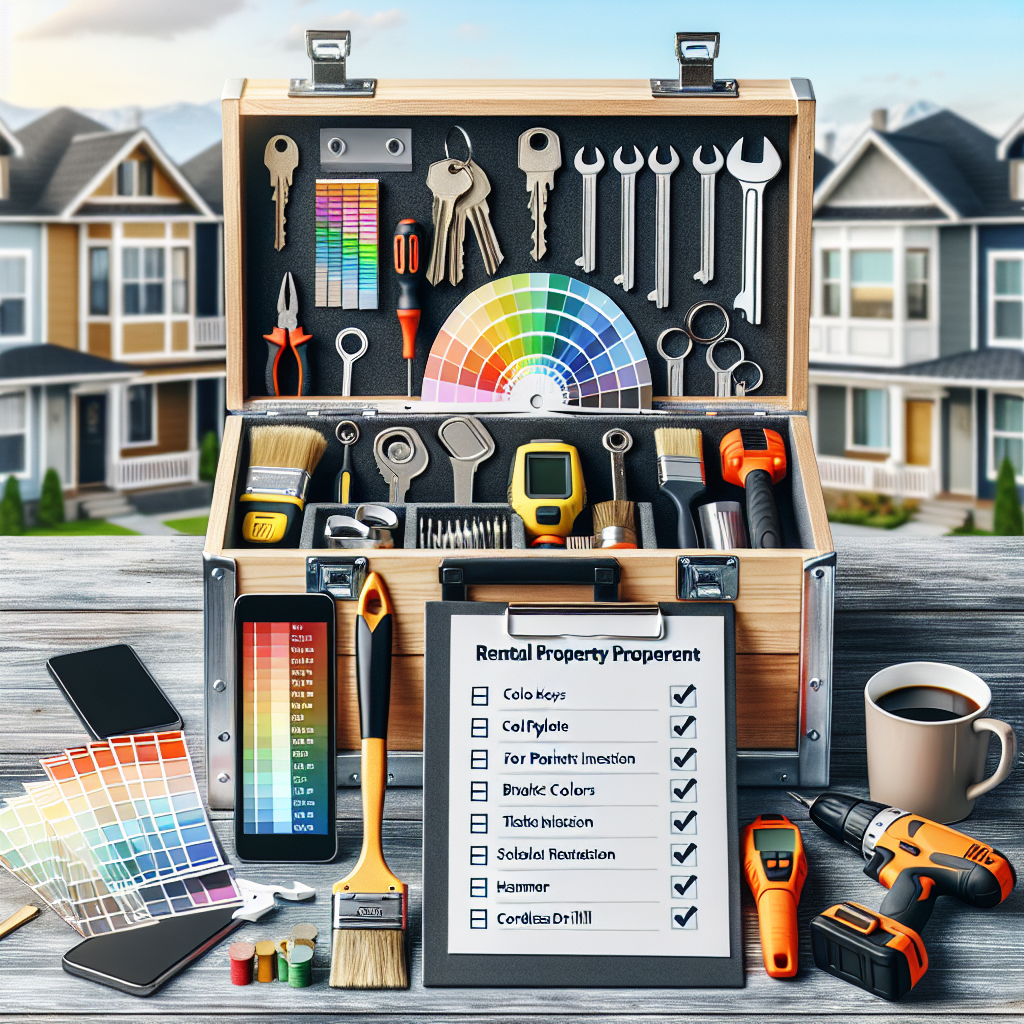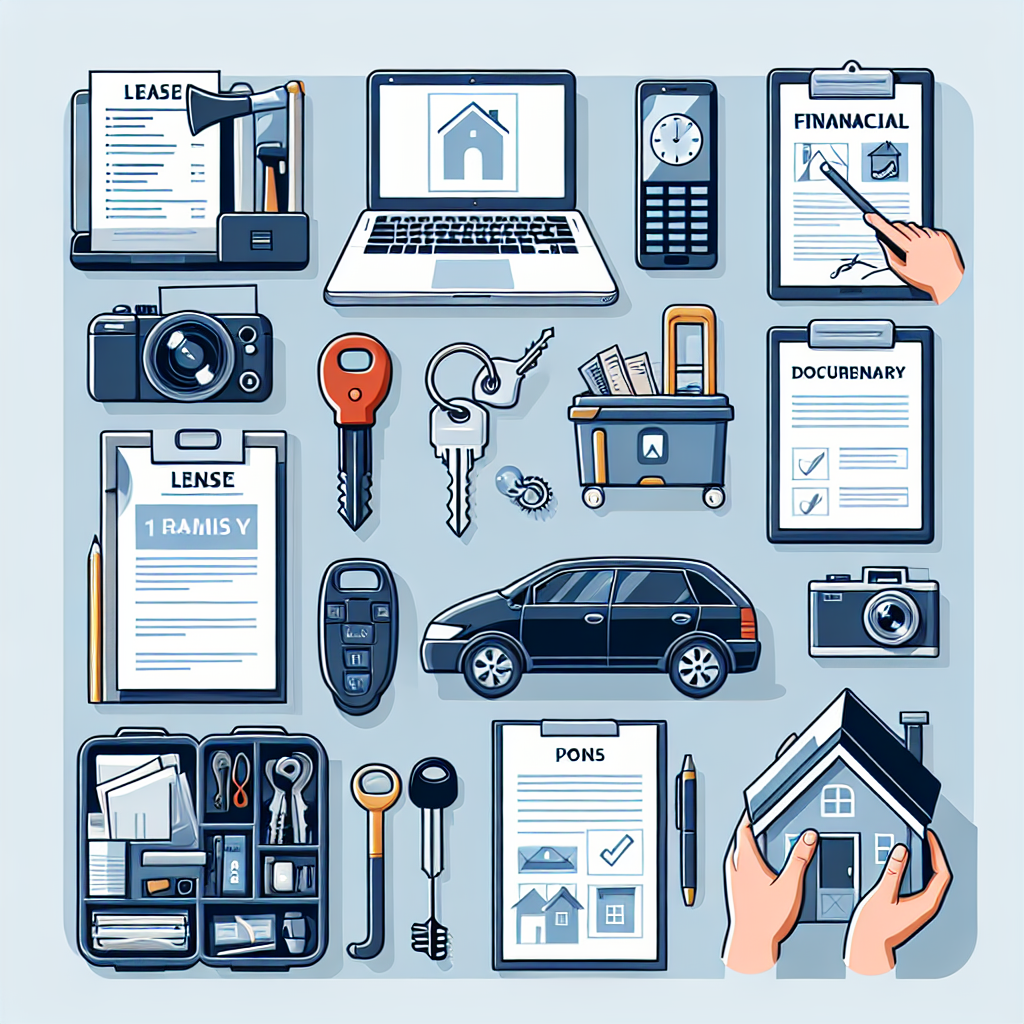-
Table of Contents
- 9 Essential Tools for Self-Managing Your Rental Properties
- 1. Property Management Software
- Key Features
- 2. Tenant Screening Services
- What to Look For
- 3. Online Rent Payment Systems
- Benefits
- 4. Maintenance Management Tools
- Features to Consider
- 5. Accounting Software
- Key Features
- 6. Lease Management Tools
- Features to Look For
- 7. Communication Tools
- Benefits
- 8. Marketing Tools
- Key Features
- 9. Legal Resources
- What to Look For
- Conclusion
9 Essential Tools for Self-Managing Your Rental Properties

Managing rental properties can be a rewarding yet challenging endeavor. For landlords who prefer to self-manage their properties, having the right tools can make all the difference. From tenant screening to maintenance management, the right tools can streamline operations, save time, and enhance profitability. This article explores nine essential tools that every self-managing landlord should consider.
1. Property Management Software
Property management software is the cornerstone of efficient rental property management. These platforms offer a range of features that simplify various aspects of property management, from tenant communication to financial tracking.
Key Features
- Automated rent collection
- Maintenance request tracking
- Tenant screening
- Lease management
- Financial reporting
Popular options include Buildium, AppFolio, and Cozy. For instance, Buildium offers a comprehensive suite of tools that allow landlords to manage their properties from a single dashboard. According to a 2021 survey by Software Advice, 74% of property managers reported increased efficiency after adopting property management software.
2. Tenant Screening Services
Finding reliable tenants is crucial for maintaining a steady rental income and minimizing property damage. Tenant screening services help landlords evaluate potential tenants by providing detailed background checks.
What to Look For
- Credit history
- Criminal background check
- Employment verification
- Previous rental history
Services like TransUnion SmartMove and MyRental offer comprehensive screening reports. A case study by TransUnion found that landlords who used their screening services experienced a 15% reduction in tenant-related issues.
3. Online Rent Payment Systems
Collecting rent can be a hassle, especially if tenants prefer different payment methods. Online rent payment systems simplify this process by offering multiple payment options and automated reminders.
Benefits
- Automated rent collection
- Multiple payment options (credit card, ACH, etc.)
- Automated late fee enforcement
- Secure transactions
Platforms like PayRent and RentTrack offer robust solutions for online rent collection. According to a study by the National Multifamily Housing Council, 79% of renters prefer to pay their rent online, making this tool essential for modern landlords.
4. Maintenance Management Tools
Keeping up with maintenance requests can be overwhelming, especially for landlords managing multiple properties. Maintenance management tools help streamline this process by allowing tenants to submit requests online and track their status.
Features to Consider
- Online request submission
- Automated work order generation
- Vendor management
- Maintenance history tracking
Tools like Property Meld and Maintenance Care offer comprehensive maintenance management solutions. A case study by Property Meld showed that landlords using their platform reduced maintenance resolution times by 30%.
5. Accounting Software
Accurate financial tracking is essential for any rental property business. Accounting software helps landlords manage their finances by offering features like expense tracking, tax preparation, and financial reporting.
Key Features
- Expense tracking
- Income tracking
- Tax preparation
- Financial reporting
Popular options include QuickBooks and Xero. According to a survey by Intuit, 89% of small business owners reported that using accounting software improved their financial management.
6. Lease Management Tools
Managing leases can be complex, especially when dealing with multiple properties and tenants. Lease management tools help landlords keep track of lease agreements, renewals, and expirations.
Features to Look For
- Lease agreement templates
- Automated renewal reminders
- Document storage
- Electronic signatures
Platforms like LeaseHawk and ContractZen offer robust lease management solutions. A case study by LeaseHawk found that landlords using their platform experienced a 20% increase in lease renewal rates.
7. Communication Tools
Effective communication with tenants is crucial for maintaining a positive landlord-tenant relationship. Communication tools help landlords stay in touch with tenants through various channels, including email, SMS, and in-app messaging.
Benefits
- Centralized communication
- Automated reminders
- Document sharing
- Real-time updates
Tools like Slack and WhatsApp Business offer versatile communication solutions. According to a survey by Propertyware, 68% of tenants prefer digital communication over traditional methods.
8. Marketing Tools
Attracting new tenants is essential for minimizing vacancy rates. Marketing tools help landlords advertise their properties through various channels, including social media, listing websites, and email campaigns.
Key Features
- Multi-channel advertising
- Automated listing syndication
- Lead tracking
- Performance analytics
Platforms like Zillow Rental Manager and RentPath offer comprehensive marketing solutions. A case study by Zillow found that properties listed on their platform received 45% more inquiries compared to other listing sites.
9. Legal Resources
Navigating the legal aspects of property management can be challenging. Legal resources help landlords stay compliant with local, state, and federal regulations, reducing the risk of legal issues.
What to Look For
- Access to legal forms and templates
- Legal advice and consultation
- Compliance tracking
- Eviction assistance
Services like LegalZoom and Rocket Lawyer offer valuable legal resources for landlords. According to a survey by the American Bar Association, 70% of small business owners reported that having access to legal resources improved their business operations.
Conclusion
Self-managing rental properties can be a daunting task, but with the right tools, it becomes significantly more manageable. From property management software to legal resources, these nine essential tools can help landlords streamline their operations, improve tenant relations, and enhance profitability. By investing in these tools, landlords can focus on growing their rental property business while ensuring a positive experience for their tenants.
In summary, the key takeaways are:
- Property management software is essential for overall efficiency.
- Tenant screening services help find reliable tenants.
- Online rent payment systems simplify rent collection.
- Maintenance management tools streamline maintenance requests.
- Accounting software ensures accurate financial tracking.
- Lease management tools simplify lease administration.
- Communication tools enhance tenant relations.
- Marketing tools attract new tenants and reduce vacancy rates.
- Legal resources help navigate the complexities of property management law.
By leveraging these tools, self-managing landlords can achieve greater success and peace of mind in their rental property ventures.








